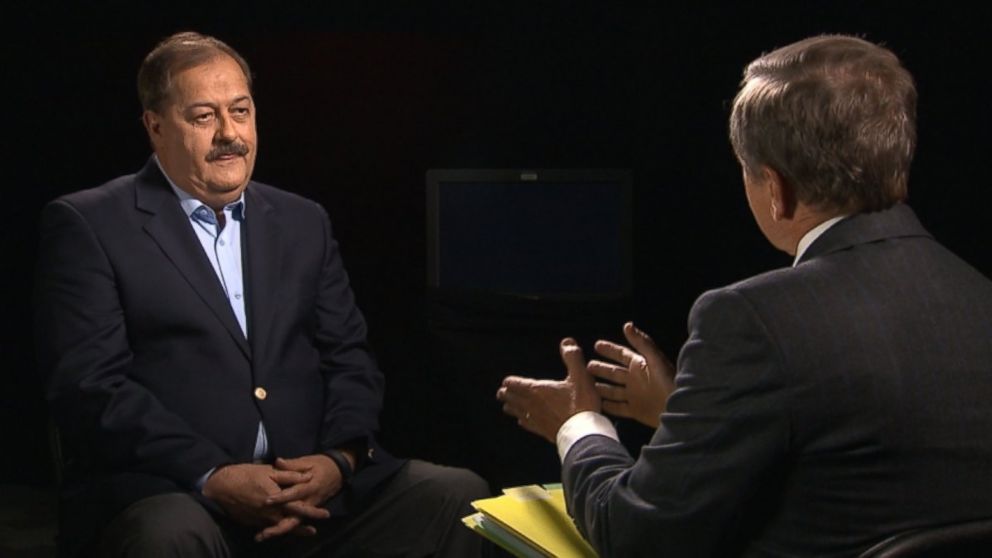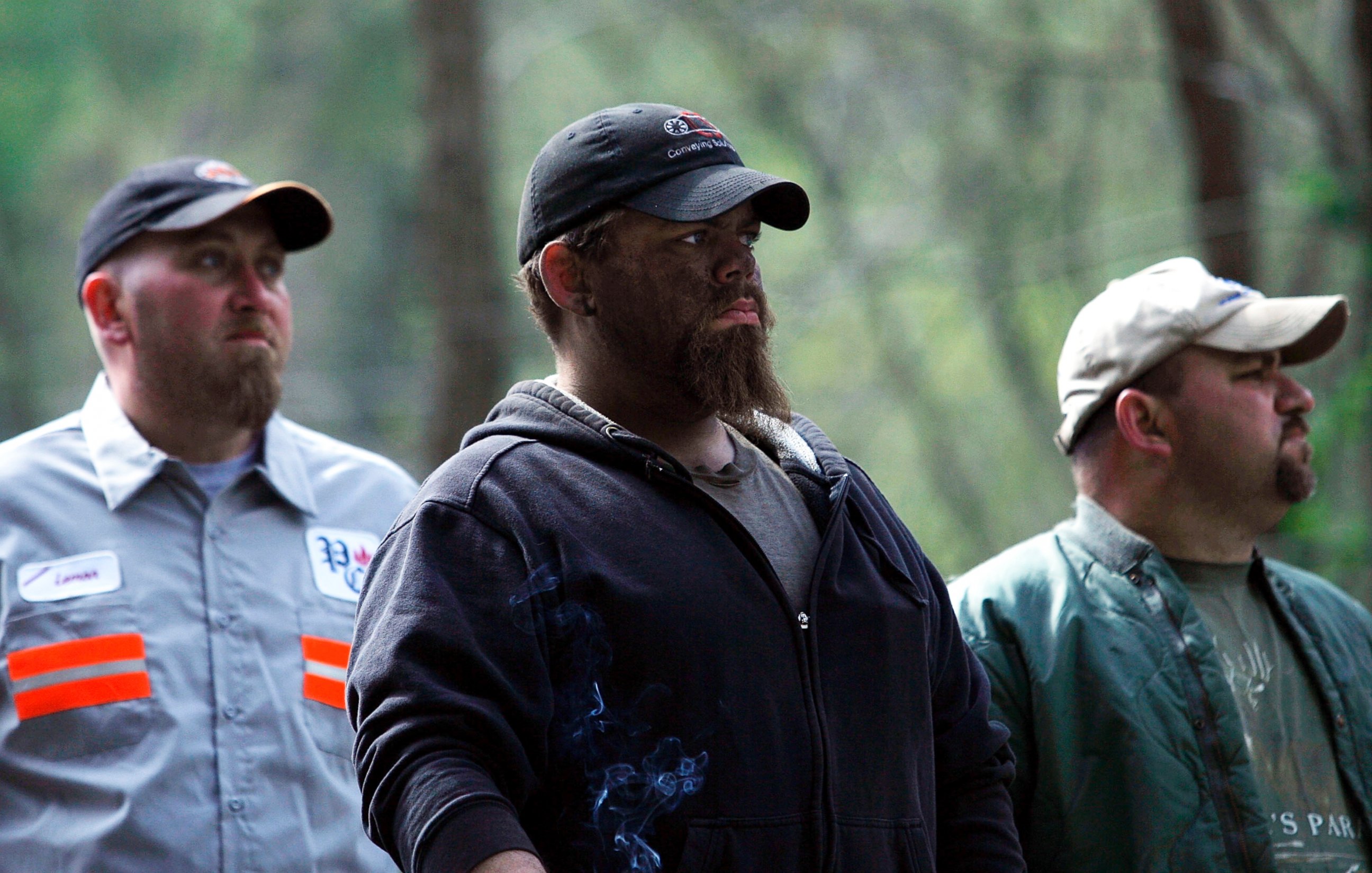Coal King Don Blankenship Pleads Not Guilty in Deadly Mine Blast
Former Massey CEO faces charges of conspiracy, fraud.
— -- Coal boss Don Blankenship pleaded not guilty in court today to a raft of charges stemming from the 2010 coal mine blast that took 29 lives, according to The Associated Press.
Once a larger-than-life figure in Appalachia, whose iron-fisted leadership of a giant coal conglomerate made him both famous and feared, Blankenship now faces up to 31 years in prison on federal charges of conspiracy, fraud and making false statements.
A federal grand jury returned the indictment against Blankenship, the former CEO of Massey Energy, last week alleging that leading up to the explosion at the Upper Big Branch mine in April 2010, Blankenship took short cuts on safety in order to maximize profits, including failing to properly ventilate the mine. Investigators believe a buildup of methane and coal dust caused the deadly blast.

The 43-page indictment alleges that for years prior to the explosion, Blankenship “conspired to commit and cause routine, willful violations of mandatory federal mine safety and health standards” at the mine and “was part of a conspiracy to impede and hinder federal mine safety officials from carrying out their duties at Upper Big Branch by providing advance warning of federal mine safety inspection activities, so their underground operations could conceal and cover up safety violations that they routinely committed.”
Prosecutors also allege he made false statements about safety practices to the Securities and Exchange Commission.
Blankenship's attorney, William W. Taylor III, said in a statement last week that Blankenship "is entirely innocent of these charges. He will fight them and he will be acquitted."
"Don Blankenship has been a tireless advocate for mine safety," the statement said, according to The Associated Press. "His outspoken criticism of powerful bureaucrats has earned this indictment. He will not yield to their effort to silence him. He will not be intimidated."
The judge handling Blankenship’s case recently imposed a strict gag order, according to local reports, purportedly in hopes of protecting a potential jury pool from bias.
The indictment came just months after Blankenship sat down with ABC News in April and said he was despised because he “does the right thing,” denying that he ever cut corners on safety matters. When asked if he believed he would be indicted, Blankenship chuckled and said, “No.”
Shortly before the interview, a federal safety report on the Upper Big Branch disaster had concluded, “If basic safety measures had been in place... there would have been no loss of life at UBB [the Upper Big Branch mine].”
Blankenship countered that the real fault rested with the federal mine safety officials he has now been accused of trying to deceive.
“You know, you can't just take the side of the government, the government's people too,” he told ABC News. “They have their own failings and their own shortcomings. We need to get to the bottom of these safety issues and truly protect coal miners, rather than seeing if we can blacken someone's reputation or hurt somebody.”

The consensus among the families of the victims, and of West Virginia’s political leaders, is that Blankenship bears the ultimate responsibility for America’s worst mining disaster since 1970.
A large group of relatives of those killed in the mine told ABC News earlier this year that they were waiting patiently for their day in court. Many rallied outside the courthouse when his indictment was announced.
In April of this year, as federal officials began to focus on his role in the Upper Big Branch explosion after he refused to participate in the official state and federal investigations, Blankenship embarked on a public relations offensive to promote a 50-minute film called “Never Again” which offered what he said was proof that the explosion was the result of an unexpected surge of natural gas into the mine shaft – not the result of safety deficiencies.
“No one ever did more for improving or trying to improve safety,” Blankenship told ABC News. He said he declined to meet with investigators because he did not believe they would treat him fairly.
Families of the victims told ABC News they considered the movie a public relations stunt aimed at influencing potential jurors who would one day hear the case against him.




